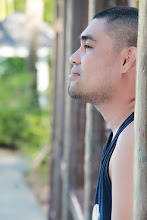In all, there were 43.7 million displaced people worldwide at the end of 2010, up from 43.3 million a year before, the U.N. High Commissioner for Refugees (UNHCR) said.
They include 15.4 million refugees who fled across borders -- 80 percent of them to nearby developing countries -- and 27.5 million uprooted within their own homelands, it said in an annual report. A further 850,000 are asylum seekers who lodged claims.
"Fear about supposed floods of refugees in industrialized countries are being vastly overblown or mistakenly conflated with issues of migration," U.N. High Commissioner for Refugees Antonio Guterres said in a statement.
"Meanwhile it's poorer countries that are left having to pick up the burden," said Guterres, a former prime minister of Portugal who heads the Geneva-based agency.
At a news conference in Rome, he urged all states not to close their borders to people seeking protection and called for more support from richer western countries for those handling the bulk of refugees.
"The most relevant contribution a state can give to refugee protection when there is a conflict is to keep the borders open," he said.
Rising food prices and poorer countries' limited access to financial markets had intensified the humanitarian crisis for refugees.
The world's poorest countries host huge refugee populations, both in absolute terms and in relation to their economic size, according to the agency's report, "Global Trends 2010". Slightly more than half of all refugees are children under 18.
Pakistan, Iran and Syria host the most refugees, with 1.9 million, 1.1 million and 1 million respectively, it says.
Afghans form the largest group, 3 million refugees, including many who left their homeland years ago, followed by Iraqis, Somalis and Congolese, whose countries are also mired in protracted conflicts.
"UNEVEN DISTRIBUTION"
"The causes of displacement are not going away. So far this year we have seen conflict in North Africa, Ivory Coast, Syria, Sudan and other places around the world that have produced people fleeing dangerous situations," Alexander Aleinikoff, Deputy High Commissioner for Refugees, told a news briefing.
But there is an "uneven distribution" of the world's displaced, he said. "Sometimes it seems the loudest objections come from countries that don't shoulder the biggest burden."
Thousands of people fleeing upheavals in North Africa have been heading to Italy on rickety boats in recent months, creating an immigration crisis in Lampedusa, an Italian island situated half way between Tunisia and Sicily.
Italy passed Greece as the main point of entry into the European Union (EU) for illegal border migrants in the first quarter of this year, officials said last week.
Asked about anti-refugee sentiment in some parts of Europe, Aleinikoff said: "I think that difficult economic times sometimes breed unfortunate populist politics, and cultural differences and religious differences may account for some of that as well."
In Europe, there were 1.6 million refugees at the end of 2010, down some 40,700 from a year before, mainly due to registration and verification conducted in the Balkans, according to UNHCR. The agency was founded 60 years ago to help 2.1 million refugees in Europe after World War Two.
Asia is home to some 4 million refugees, followed by 2.1 million in Africa, while there are nearly 7 million in the Middle East and North Africa and 800,000 in the Americas.
Some 100,000 refugees who could not return home or stay in their first countries of asylum were resettled last year in 22 countries, more than 70,000 of them in the United States.















